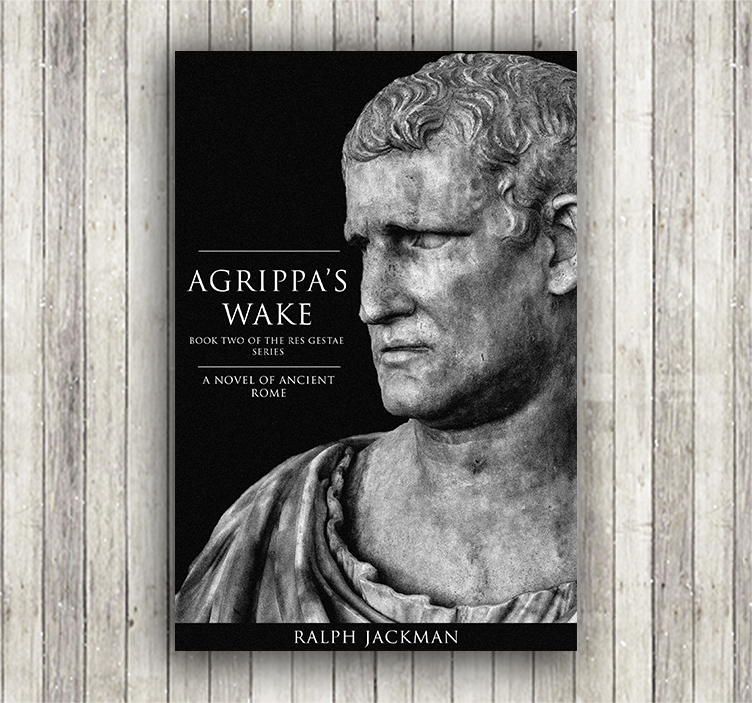Agrippa’s Wake
Around 27 BC in Rome, after Octavian becomes the first Roman emperor Caesar Augustus, a man stands beside a tombstone inscribed with the name of Marcus Rutilius Crispus. The man has a “haunting experience,” for he is Rutilius himself, and very much alive. Rutilius, a former senator, had supported Octavian in the civil war against Antony and Cleopatra. However, having disobeyed some orders, he has to face Octavian’s wrath. Not only does Rutilius lose his senatorship, his wife, and all his wealth, but he also has to escape from a death sentence. He manages to fake a drowning and sneaks away in a fishing boat. Following many weeks at sea, he returns seeking vengeance. While he alone could not challenge Octavian’s power, Rutilius is assisted by an attractive former slave girl and an unlikely ally, Agrippa, who had testified against him. Although Agrippa is Octavian’s fidus Achates (faithful friend), Rutilius, while reckless at times, uses adroitness and Roman political intrigues to his advantage.
Ralph Jackman introduces the novel’s historical features in a unique manner. In addition to vividly describing the architecture of the many imposing edifices of Rome and elsewhere and the stories depicted in the friezes, the backgrounds of many Roman patricians are illustrated by narrating the details on the various coins depicting them. In addition to the historical chronicle, which many might be familiar with, the author includes fascinating snippets, such as: “Octavian only became Caesar’s son after Caesar was murdered,” which add to the story’s appeal. He constructs the plot by weaving together the storylines of fictional characters and real historical figures’ lives, making the novel come alive. We are transported to that era. Although Octavian’s portrayal as a tyrant might surprise some, the novel’s historical aspects are feasible, informative and entertaining. Recommended.










